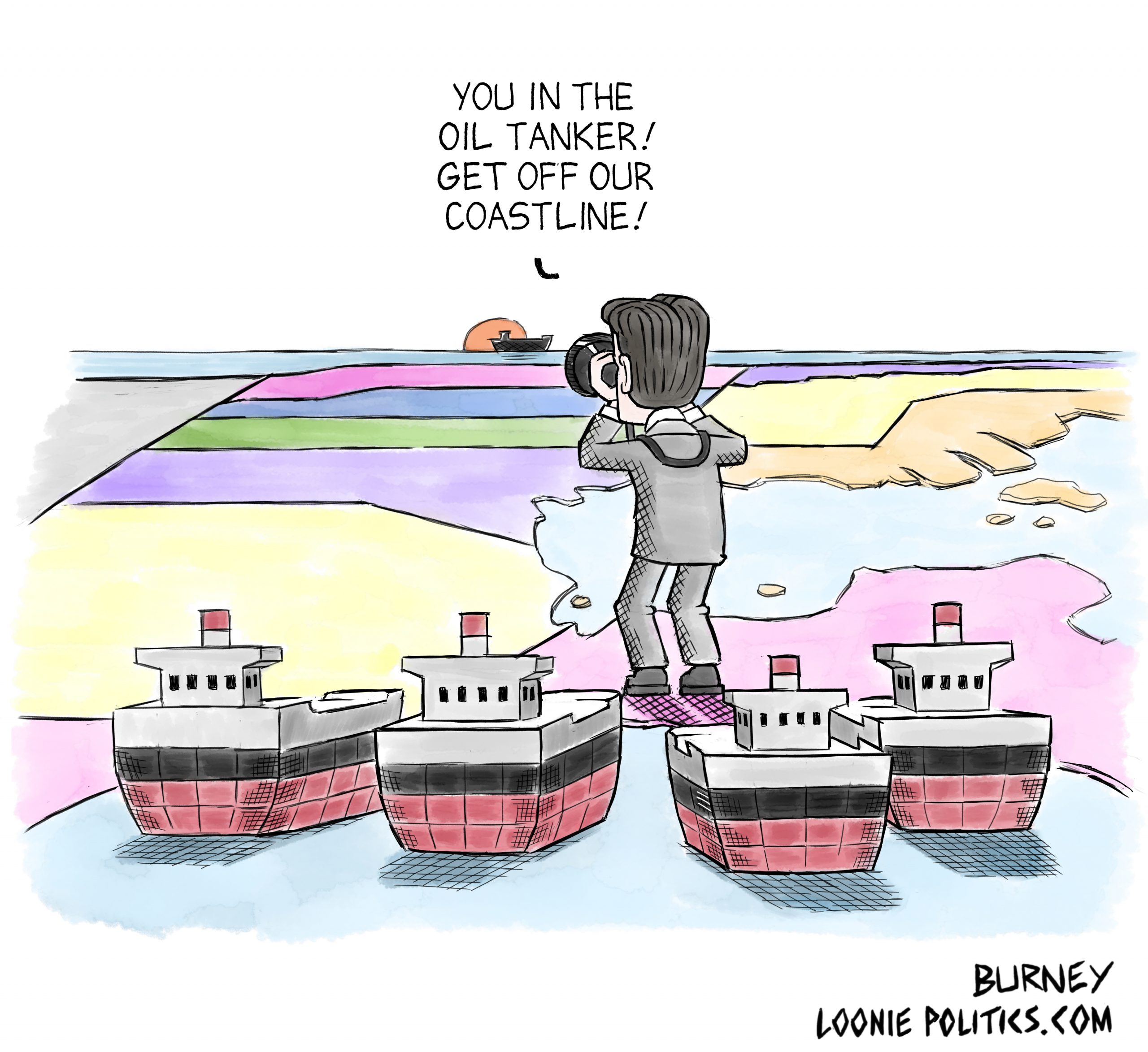As the political drama around the government's environmental assessment legislation, Bill C-69, rages on, a number of the country's pundit class have prematurely started offering plaudits about how this is somehow indicative of the "new" Senate somehow "working," and that even the record number of amendments that the government did accept were somehow all thanks to this new system of independent senators that carefully heard the evidence, weighed their options, and presented a "balanced" set of amendments to the government for their careful consideration. The problem, of course, is that this is almost entirely a work of fiction that is being perpetrated upon the Canadian people, and amplified by credulous columnists.
Bills C-69 and C-48, the latter of which would ban tanker traffic along BC's north coast, have become symbolic of the fight between conservative provincial governments, flocking under the banner of Jason Kenney, and Justin Trudeau's federal government. The rhetoric is entirely overblown, of course — neither bill is unconstitutional, as Kenney claims. C-69 won't kill any future pipelines or major infrastructure projects, nor will it add to any industry uncertainty — after all, the current system, implemented by the Harper government, has resulted in a lot of litigation because it introduced too much uncertainty into the system, and ignored certain obligations, such as the the duty to consult Indigenous communities that would be affected by project, and it was this duty to consult that resulted in projects being struck down by the courts — Northern Gateway and the Trans Mountain expansion in particular. (Despite the mythology, it was not the environmental assessment that killed Energy East, as that process had not even begun yet — the economics of the project were no longer viable once Keystone XL was back in play).
The other thing to remember is that C-69 is not hated by all resource industries. In fact, the mining industry, which accounts for the majority of all environmental assessments, has been in favour of the bill because it does attempt to reintroduce a sensible process. The oil and gas industry, meanwhile, has been working on their mythology around the supposed "no more pipelines" premise of the bill, and more to the point, keep lamenting that we once upon a time built railways and we couldn't do that any more under this system — ignoring the fact that the railways caused the displacement of many First Nations communities, and relied on virtual slave labour to build it. Probably not the best example to use, guys.
When it came to the Senate's examination of the bill, they put on a big show about cross-country consultations in order for the bill's opponents to theatrically demonstrate the level of concern about how this would somehow devastate the energy industry in the country (forget the world price of oil), and in the end, they were presented with a group of amendments from both the Alberta government and the oil and gas industry lobbyists, which they claimed would make the bill acceptable, but would in fact gut it and create more of the uncertainty that the bill was trying to undo. And because of a deal between the Conservatives and the other factions in the Senate, they decided that rather than fight it all out, they would simply pass all provincial and industry amendments in order to let the bill proceed without more procedural wrangling.
Amidst this, however, were a series of amendments that came from the Cabinet, who realized the longer the hearings on the bill went on that, yeah, there were things that did need fixing, and they would introduce those amendments in the Senate. (This after dozens of government amendments that were adopted in committee stage in the House of Commons. A perfectly drafted bit of legislation this bill was not). Normally, however, when these government amendments are brought forward in the "new" Senate, they will come by way of the Leader of the Government in the Senate — err, "government representative," Senator Peter Harder, or his deputies, Senators Bellemare or Mitchell. Mitchell was sponsoring the bill in the Senate, and was on the committee studying the bill. The amendments did not come via him. Instead, the government passed them through other members of the Independent Senators Group.
At this point, the bill was a complete dog's breakfast, with amendments that directly contradicted one another. Normally the Senate would undertake some actual due diligence and ensure that those were dealt with so that there was a passable bill that could go back to the House of Commons. Not this time. Rather than do the actual work that is the entire raison d'être of the Senate, Harder declared that it would be best if they just let the government sort out which amendments they would keep and which they would strike down — in other words, when any blowback happened, the Senate could say that they did their job (when they didn't), and all blame would be laid on the government's feet. It was a deeply cynical play, and yet, the Independent senators lapped it up.
As could be expected, the government rejected the bulk of those amendments, and pretty much all of the Conservative or industry amendments. But while Independent senators were busy patting themselves on the back for getting some ninety amendments passed to the bill, what they either ignore or haven't been told is that some ninety-five percent of "their" amendments that got adopted came from the government, but were laundered through the ISG. And on most bills where the government has accepted amendments — stats that Harder likes to crow about when he touts the "success" of this "new" Senate — those amendments came from the government in the first place.
Meanwhile, we see plenty of columnists now, trying to sell the notion that the Independent senators reached these amendments after due and careful consideration, so maybe the government should let them go through. Except that's not what happened. Digging deeper into what transpired shows that this "new" Senate is not living up to its promises (not to mention that there seems to be a problem with the legal drafting arm of the Department of Justice that keeps sending these badly flawed bills to Parliament). Stop taking Harder's word for how the institution is working, because it's not reality.
Photo Credit: Jeff Burney, Loonie Politics








